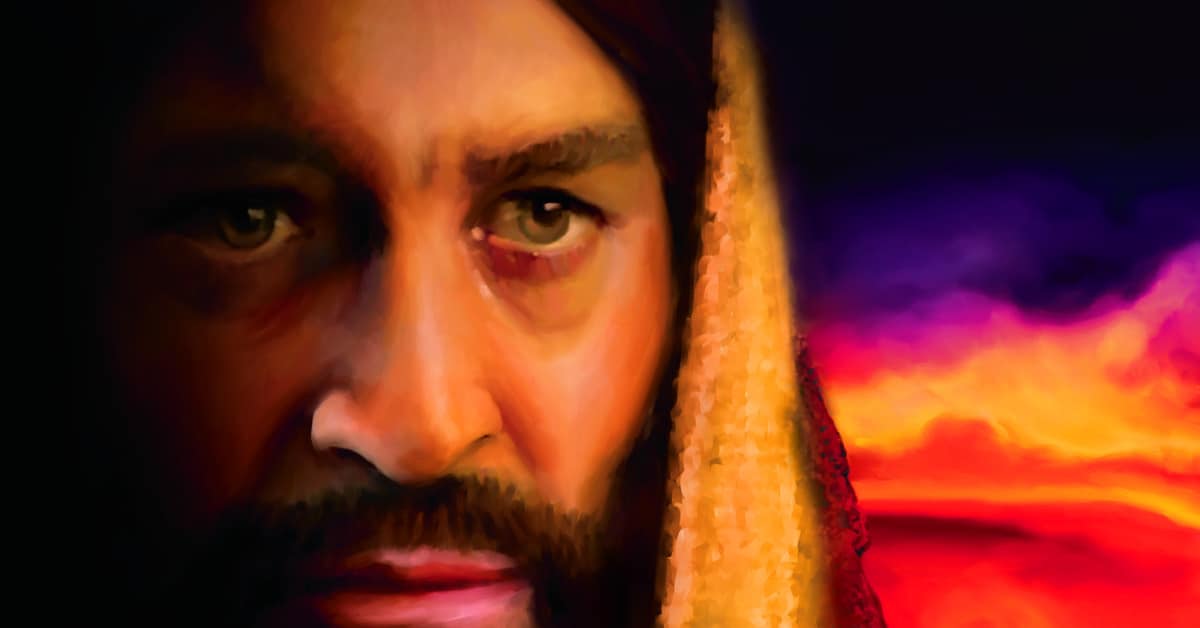The Man Of Sorrows

(The graphic above was taken from the cover image of A Man Like No Other, art by Murry Whiteman with text by Wayne Jacobsen and Brad Cummings)
It’s hard to imagine that these words would describe the most authentic personification of love to ever live on this planet, but this is how Isaiah foretold it:
“He was despised and rejected by mankind, a man of suffering, and familiar with pain. Like one from whom people hide their faces, he was despised, and we held him in low esteem. (Isaiah 53:3)
The fullness of God’s love was despised and rejected by many who knew him. Incredibly sad!
Jesus often talked about joy, and he wanted his joy to be in us so that our joy would be complete. Nevertheless, he also felt the pain of a fallen Creation and suffered from it himself. Even loving to the full, that love proved disquieting to the agenda of many, and thus he knew the undeserved rejection of those he loved. When I think of Jesus and suffering, I’m so immediately drawn to the events of his Passion that I skip over the pain he held each day while he was here, much less the pain he and his Father have held since Creation’s fall.
Only recently (for reasons I’ll share in the future) has my heart become attuned to the agony of God that beats through the cosmos beneath the strains of the joy and victory of his redemption. Oh, he will win, and one day the kingdoms of this world will become the kingdom of our God and of his Son. I can hardly imagine what that day will be like! Until then, God’s joy is also accompanied by undertones of anguish that he feels for the lingering injustices of humanity, the war and conflicts that devastate countries and destroy friendships and families, the sexual abuse of powerless victims, the despair of suicide and its impact on loved ones, malnourished bodies, natural disasters, and the betrayal and greed some trade on to the exploitation of others.
The writer of Hebrews told us that Jesus’s agony went beyond the crucifixion and was laced throughout his days. “During the days of Jesus’ life on earth, he offered up prayers and petitions with fervent cries and tears…” This was more than Gethsemane; this seems to be a regular undertone to his life and may well explain his weeping at the tomb of Lazarus and his anguish in Gethsemane. It certainly was not for the loss of his friend whom he would momentarily raise from the dead, but for death and suffering in the cosmos itself. And if so, he may still carry that agony of a lover for the wounds of his beloved.
Redemption was always in sight, but that did not mitigate his empathy for the wounds of his Creation. The Redeemer comes to our rescue with tears in his eyes, and an ache in his heart for all that “fallenness” has done to us. And when redemption happens, his ecstasy overwhelms his agony. For those of us living before the days of the restoration of Creation, we taste that agony as well in what we suffer and what we behold in others. So when I hear of the devastation of earthquakes in Syria or Turkey, starvation throughout East Africa, needless destruction in Ukraine, or delusion throughout the West, I have a place to put that now. I can hold the world’s pain with God in the hope of a victory yet to come. It has changed the way I pray and the way I walk with others through their own difficulties. You’ll hear more about that in future articles here.
For now, it is enough to be reminded that those who love deeply will hurt deeply. Every lingering pain can be a reminder of the as-yet unredeemed Creation and a touchstone with God’s passion for redemption. When we hurt with others, we are reminded that God bears our pain as well. When we are rejected by people we love, we find comfort that God knows that too. Jesus knows that all too well. Sharing my pain with him as he shares his with me is also part of living loved.
You cannot love and avoid pain. Love allows you to sit in the suffering, your own or someone you care about, and watch for how God moves redemptively. If you run from pain, you’ll find yourself often running from love, and, ultimately, from God. If you can embrace the reality of God-with-you in your suffering, then it will not consume you. It will also allow you to see more easily his way forward until ecstasy triumphs over agony.




